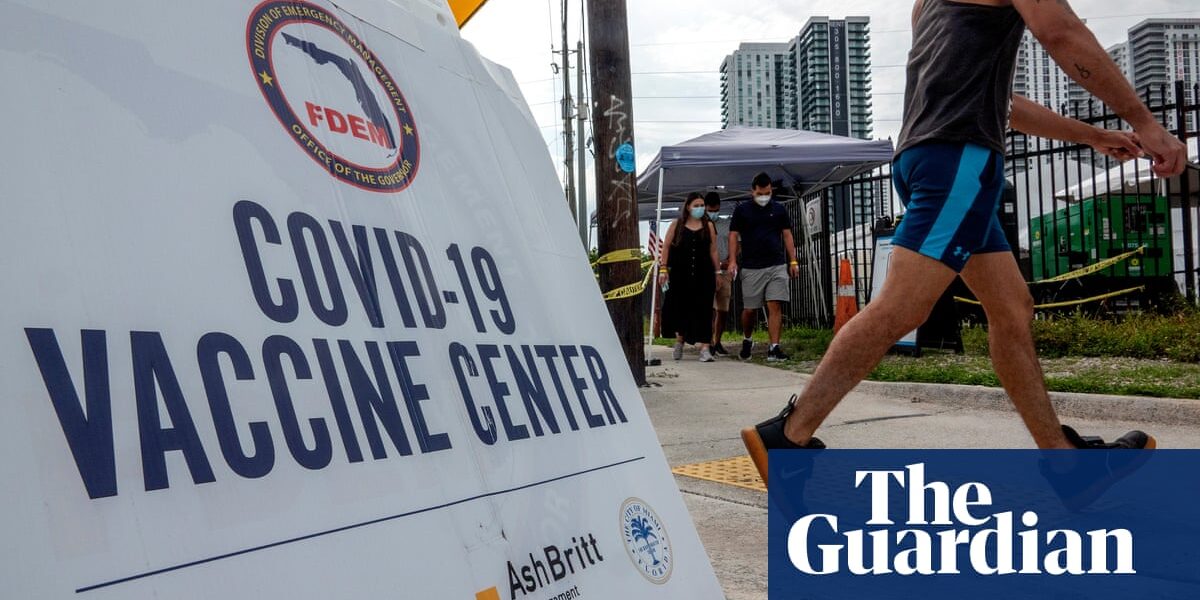There has been a significant increase in the number of Americans experiencing persistent symptoms of Covid.

A recent survey by the CDC found that approximately 6.8% of American adults are currently suffering from long Covid symptoms. This concerning increase has been observed in the past few months, despite the CDC’s relaxation of Covid isolation guidelines, according to experts.
That means an estimated 17.6 million Americans could now be living with long Covid.
According to David Putrino, the Director of the Cohen Center for Recovery From Complex Chronic Illness at Mount Sinai, this should be causing concern for numerous individuals. He goes on to say that problems are arising at a faster rate than anticipated.
During the previous survey in October, 5.3% of participants reported currently having long-term symptoms of Covid.
There was a 1.5 percent rise in infections across the United States during the winter, based on the available data on wastewater.
Over 75% of individuals currently experiencing long-term effects from Covid report limitations in their daily activities, with approximately 20% saying it has a significant impact on their ability to engage in activities. This equates to an estimated 3.8 million Americans who are suffering from disabling symptoms following a Covid infection.
A recent research report concluded that a significant number of individuals in the UK could potentially not be employed due to long-term effects of Covid-19. Similarly, Americans have been experiencing a higher rate of work absences since the outbreak of the pandemic.
The percentage of adults currently suffering from long-term Covid is at its highest level since November 2022, with a peak of 7.6% in June and July 2022 according to CDC data.
According to CDC spokesperson Dave Daigle, the estimates are only a temporary measurement, making it challenging to determine the impact of various elements such as increases in cases, vaccination rates, new variants, and survey techniques.
The latest Household Pulse survey occurred from January 9th to February 5th. Participants were asked if their Covid symptoms had been persisting for three months or longer. Due to the fact that long Covid symptoms persist after initial infection, the rate of cases may increase even as infections decrease from their winter high.
The upcoming survey results will be released by the end of this month.
According to health organizations in the US, long Covid is defined as symptoms lasting for at least four weeks. This means that the rate of long Covid may actually be higher than what was reported in the survey.
Geographical variations exist, with the most reported instances in North Dakota, Kentucky, West Virginia, Alaska and Maine, and the least reported in Hawaii, Pennsylvania and Wyoming.
According to the survey, 17.6% of adults in America have had long-term effects from Covid at some point.
According to studies, even though children are not part of the CDC survey, they can still suffer from long-lasting effects of Covid, such as fatigue, cognitive difficulties, and headaches. Additionally, they may also face severe respiratory and cardiovascular complications, such as myocarditis.
According to Lara Jirmanus, a clinical instructor at Harvard Medical School and a member of the People’s CDC, the increase in long-term Covid cases is cause for concern due to our limited understanding of its effects, mechanisms, and reasons.
Disregarding the number of Covid cases at the current moment displays a level of arrogance that implies we have the ability to predict the future, according to Jirmanus. “No one can say for certain the repercussions of long-term Covid in five years. It is not prudent to completely disregard precautions.”
On February 22nd, the findings of the survey were made public, over a week before the CDC’s revised recommendations for Covid isolation. In their guidance, the CDC notes that the occurrence of long-term symptoms related to Covid seems to be decreasing, which contradicts the results of their own survey.
According to experts, the agency’s recommendation to end isolation while symptoms are still improving contradicts scientific proof and may result in further transmission of the virus, as well as more cases of long-lasting Covid.
Putrino stated that the advice given is highly irresponsible and goes against scientific evidence. It is regrettable because we look to public and government officials to accurately interpret and convey scientific information to us, which is their duty. Unfortunately, they are currently not fulfilling their obligation to the public.
According to Putrino, although vaccines can decrease the chances of experiencing long-term effects of Covid, the most effective method of prevention is to avoid contracting the virus altogether. This is particularly important because repeat infections can increase the likelihood of prolonged illness. Each time an individual becomes infected with Covid, their risk of developing long-term effects is elevated.
Individuals with pre-existing long-term Covid may encounter a relapse or progression of symptoms upon contracting new infections. According to research, 80% of participants reported an exacerbation of symptoms during a second infection.
Unfortunately, there is currently no solution for long-term effects of Covid-19, and the availability of funding for research into potential treatments has been lacking in speed.
According to Putrino, he anticipates that the rates of long-term Covid will fluctuate with each new wave, but the overall rate may gradually increase, which could greatly impact the health and wellness of Americans.
Putrino stated that the lack of protection and guidance from the government in regards to infection prevention is resulting in numerous incidents, which is greatly affecting the situation.
The extent of the increase in the number of people experiencing long-term effects of Covid-19 is still uncertain, and it is unknown if there will be a peak or if the numbers will keep rising without end.
“I find it concerning that the public is not being informed of these risks,” he stated. “Let individuals make their own choices, but provide them with all the necessary information to do so.”
Source: theguardian.com



